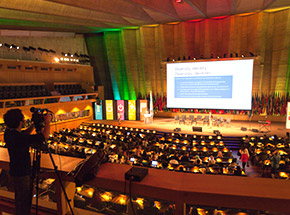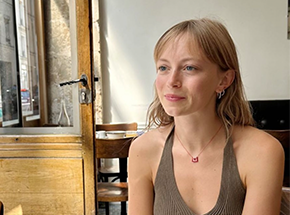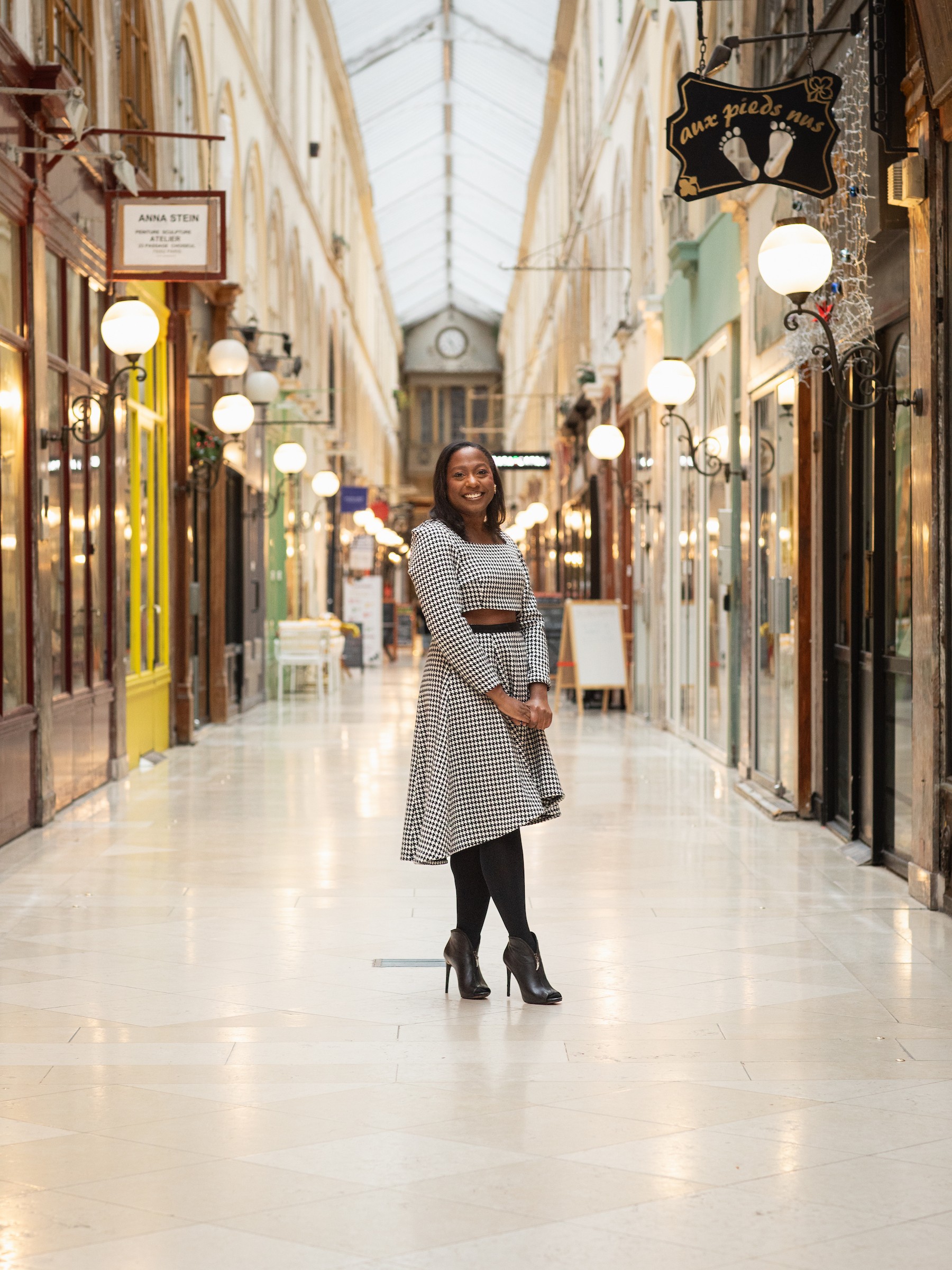- About AUP
- History of AUP
- Mission & Core Values
- Vision and Leadership
- AUP Recognition
- Alumni Success
- Campus Development
- Arts at AUP
- Policies & Guidelines
- Academics
- Undergraduate
- Graduate Programs
- MA in Diplomacy and International Law
- MA in Global Communications
- MSc in Human Rights and Data Science
- MA in International Affairs
- MA in International Affairs, Conflict Resolution, and Civil Society Development
- MSc in International Management
- MSc in Strategic Brand Management
- Find Your Thesis Advisor
- Previous Programs
- Cultural Program
- Faculty
- Summer School
- Research Centers
- The Center for Critical Democracy Studies
- Upcoming Events
- Research Projects
- Fellows’ Publications
- Publishing
- Curriculum
- Community
- Partnerships
- Visiting Scholars
- CCDS Highlights
- Atelier de Théorie Politique – Paris
- Critical Theory 101: Future Directions and New Challenges
- Martti Koskenniemi on “The Law of International Society: A Road not Taken”
- Academic Freedom Symposium
- Tocqueville Colloque 2023
- Violent Turns Conference
- Degenerations of Democracy
- DEMOS21 Inaugural Event
- What Demos for the 21st Century?
- The Paris Centennial Conference
- Justice Stephen Breyer
- Civic Jazz - The Launch of the Center
- Past Events
- FR
- The Center for Writers and Translators
- The George and Irina Schaeffer Center for the Study of Genocide, Human Rights and Conflict Prevention
- The Joy and Edward Frieman Environmental Science Center
- The Center for Media, Communication & Global Change
- The Center for Critical Democracy Studies
- Departments
- Academic Resources
- Academic Affairs
- Academic Calendar
- Academic Resource Center
- Library
- Registrar's Office
- Teaching and Learning Center
- Accessibility & Accommodation Services
- AI@AUP: A Campus-Level Initiative
- Quai D'Orsay Learning Commons
- Paris as Classroom
- ACE
- Admissions
- Student Life
- Campus
- Student Leadership & Involvement
- Paris
- Support Services
- Student Life Help Desk
- Student Accounting Services
- Student Immigration Services
- Student Grievance Procedure
- Diversity and Inclusion
- Health & Well-being
- Digital Student Handbook
- News
- Events
- AUP Giving
- Housing Offer for 2025-2026
- IT Services
- Alumni
- About AUP
- History of AUP
- Mission & Core Values
- Vision and Leadership
- AUP Recognition
- Alumni Success
- Campus Development
- Arts at AUP
- Policies & Guidelines
- Academics
- Undergraduate
- Graduate Programs
- MA in Diplomacy and International Law
- MA in Global Communications
- MSc in Human Rights and Data Science
- MA in International Affairs
- MA in International Affairs, Conflict Resolution, and Civil Society Development
- MSc in International Management
- MSc in Strategic Brand Management
- Find Your Thesis Advisor
- Previous Programs
- Cultural Program
- Faculty
- Summer School
- Research Centers
- The Center for Critical Democracy Studies
- Upcoming Events
- Research Projects
- Fellows’ Publications
- Publishing
- Curriculum
- Community
- Partnerships
- Visiting Scholars
- CCDS Highlights
- Atelier de Théorie Politique – Paris
- Critical Theory 101: Future Directions and New Challenges
- Martti Koskenniemi on “The Law of International Society: A Road not Taken”
- Academic Freedom Symposium
- Tocqueville Colloque 2023
- Violent Turns Conference
- Degenerations of Democracy
- DEMOS21 Inaugural Event
- What Demos for the 21st Century?
- The Paris Centennial Conference
- Justice Stephen Breyer
- Civic Jazz - The Launch of the Center
- Past Events
- FR
- The Center for Writers and Translators
- The George and Irina Schaeffer Center for the Study of Genocide, Human Rights and Conflict Prevention
- The Joy and Edward Frieman Environmental Science Center
- The Center for Media, Communication & Global Change
- The Center for Critical Democracy Studies
- Departments
- Academic Resources
- Academic Affairs
- Academic Calendar
- Academic Resource Center
- Library
- Registrar's Office
- Teaching and Learning Center
- Accessibility & Accommodation Services
- AI@AUP: A Campus-Level Initiative
- Quai D'Orsay Learning Commons
- Paris as Classroom
- ACE
- Admissions
- Student Life
- Campus
- Student Leadership & Involvement
- Paris
- Support Services
- Student Life Help Desk
- Student Accounting Services
- Student Immigration Services
- Student Grievance Procedure
- Diversity and Inclusion
- Health & Well-being
- Digital Student Handbook
- News
- Events
- AUP Giving
- Housing Offer for 2025-2026
- IT Services
- Alumni
Alumna
Perseverance and the Power of Untold Stories
Robin Allison Davis G’17 on her book "Surviving Paris: A Memoir of Healing in the City of Light"
By Monique Callender
When Robin moved to Paris in 2016 to pursue a master’s degree at The American University of Paris, she didn’t do so for love or an Instagrammable version of expat life.
She came with a clear goal: to create a life outside of the “American way.” What she found in Paris would be exactly that, but even more transformative than she could have imagined. After being diagnosed with breast cancer twice in three years, on September 16, 2025 she shares her story with us in a powerful new memoir about resilience and identity.
Originally from the Washington, D.C. area, Robin attended Howard University on a full scholarship. Self-described as a “doer,” Robin describes her time at Howard as eye opening —confessing that she lost her scholarship during her freshman year due to over-socializing, or in other words, partying too much.
“My high school graduating class was about 10 people, and I’m an extrovert.” She offers with a shrug. The lesson learned was that she needed to manage her time better, and she’s glad to have learned this lesson early, while she was still able to move home, regroup, and continue forward.
By the time she started looking into life in Paris in 2015, Robin was already well established in her career as a journalist and had even won an Emmy for her work on a special about the “Miracle on the Hudson” with Dateline NBC. Even with an Emmy, starting a life in Paris wasn’t easy. The search for a job that would sponsor her visa turned up nothing.
“I’d been working in my field for ten years and couldn’t find a job abroad that would sponsor me,” she explained. “So I looked up other ways people made the move and found a blog by (fellow alumna) Anne Ditmeyer G’11 that mentioned AUP.” This led her to looking at the University’s website for an alumni profile of another woman who had come to Paris in her 30s, and she came across Ruby Veridiano G’15. “I reached out to her, and she encouraged me to apply. I thought maybe I could leverage a master’s degree into a permanent life abroad.”
She thought right.
Her first two years in Paris were busy with coursework and full of “rich conversations in class that challenged my assumptions and gave me cultural context I hadn’t considered before.”
Outside the classroom, Robin juggled babysitting, tutoring, and freelance gigs to make ends meet. “Grad school in your 30s is different,” she laughed. “At Howard, I was idealistic and focused on building my career. At AUP, I was focused on survival. It’s humbling but it also makes you very resourceful.”
After graduating from AUP’s MA in Global Communications (MAGC) program, Robin obtained a job offer and felt herself thriving in her adopted city. “Everything was going great. I’d just started a new job, I went to Dîner en Blanc, I saw Serena Williams play at Roland Garros. It was, truly, the best weekend of my life.”
In a film-like turn of events, the following Monday her doctor found a lump that turned out to be breast cancer. The diagnosis would change her life.
Her forthcoming memoir, Surviving Paris: A Memoir of Healing in the City of Light, begins with this mind-bending contrast; the height of joy undercut by an unexpected health crisis. But her story is not only about illness. It’s about facing vulnerability without being fluent in the native language and discovering community in unlikely places.
Though Robin had completed her studies, she credits AUP for playing a crucial role in supporting her through that time. “Thankfully, I still had the private insurance AUP required us to get, and the University’s health services really helped me navigate what came next,” she shared. “I wasn’t a student anymore, but the AUP network still held me up.”
Always a writer, Robin described a childhood of writing short stories and poems with aspirations of one day writing a book. The one thing she never counted on was the topic. Despite the subject material, Robin believes her book is accessible and a good story for many people, not only cancer survivors.
Her story disrupts the dominant narrative found in many books about life in Paris. “So many books about moving to Paris are about falling in love, having French children, and dealing with funny bureaucratic mishaps,” she said with a smile. “But I couldn’t find any stories about people like me; Black women, in their 30s, building new lives and facing major health issues abroad.”
The process wasn’t easy. Starting the book during the first remission, she stopped the project believing that no one would be interested in her cancer story. It wasn’t until her second diagnosis when she decided this was a story that must be told.
But completing it meant diving back into the emotional weight of illness. For Robin, the emotional labor of writing went beyond simply recounting medical details. As a Black woman telling a deeply personal story, she was doing something rarely seen in mainstream publishing. “There’s a particular kind of vulnerability involved in putting this out there, especially when so few stories like mine have been told.”
In writing her story, Robin was not only documenting a life-altering experience, but she also claimed space in a literary landscape that too often leaves out Black women. Writing a memoir that admits vulnerability when the status quo is to pretend like everything is fine is an act of resistance. It is insisting that stories of Black womanhood abroad not only exist but deserve to be told in full.
“I kept journals throughout, but actually writing the book required me to revisit the hardest moments of my life,” she said. “My editor and beta readers kept encouraging me to go deeper, to let go of the journalist’s instinct to hold emotion at arm’s length.”
Her AUP education played a meaningful role in this shift from journalism to personal narrative. Though she had been working in media long before attending the MAGC program, Robin says the coursework and the international context helped her expand her perspective. “The development communications class with Professor Tanya Elder really stuck with me. Concepts like top-down versus bottom-up communication stayed with me long after.”
Robin’s story is a reminder that life in Paris is not always romantic. But it can be transformative.
“There’s a saying, ‘Paris is always a good idea.’ I agree, but I also think people need to come with their eyes open. Things will be harder than you expect. But that doesn’t mean it’s not worth doing.”
In 2023, Robin became a French citizen, hitting a milestone that cemented her sense of home in the city that once felt so uncertain.
Now that Surviving Paris is on the verge of release (coming in early September), Robin is already looking to the future. She’s working on a children’s book and a horror novel set in Normandy. She mentioned exploring ideas for screenplays. “This book unlocked something in me,” she said of her upcoming projects.
Asked what she’d tell prospective AUP students considering a move to Paris, she didn't hesitate. “Do it. Learn as much French as you can, brace yourself for challenges, and know that what you’re building here might just change your life.”
Related
-

UNESCO Youth Forum
Student Work
Read MoreUNESCO Youth Forum
Student Work
The Peacock Plume was selected by UNESCO to step in as the official source of news for the 9th Youth Forum in Paris.
-

Pauline Rodhain ’13
Alumna
Read MorePauline Rodhain ’13
Alumna
The knowledge I gained in AUP's classes ten years ago is indispensable in my industry today.
-

Samantha Gilliams Builds Worlds Around Food
Alumni
Read MoreSamantha Gilliams Builds Worlds Around Food
Alumni
Samantha Gilliams knows a thing or two about ingredients.

